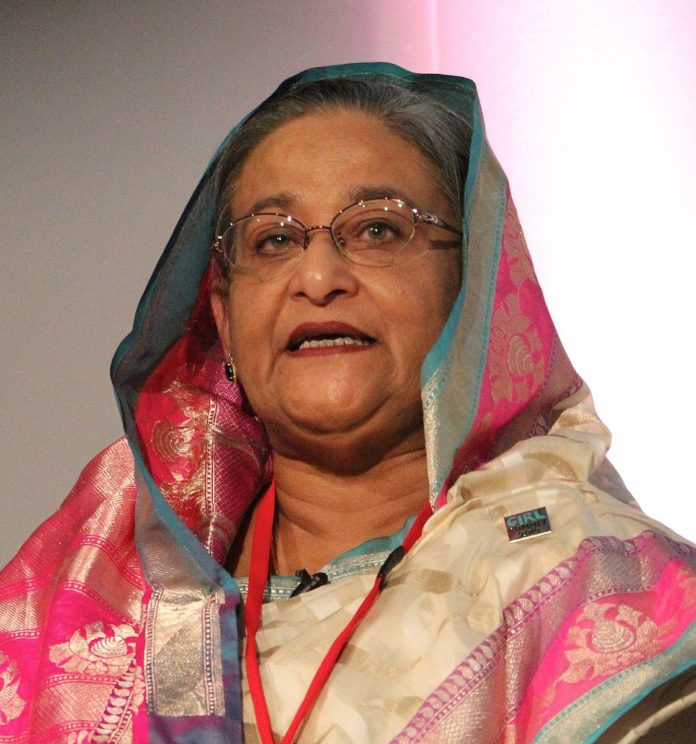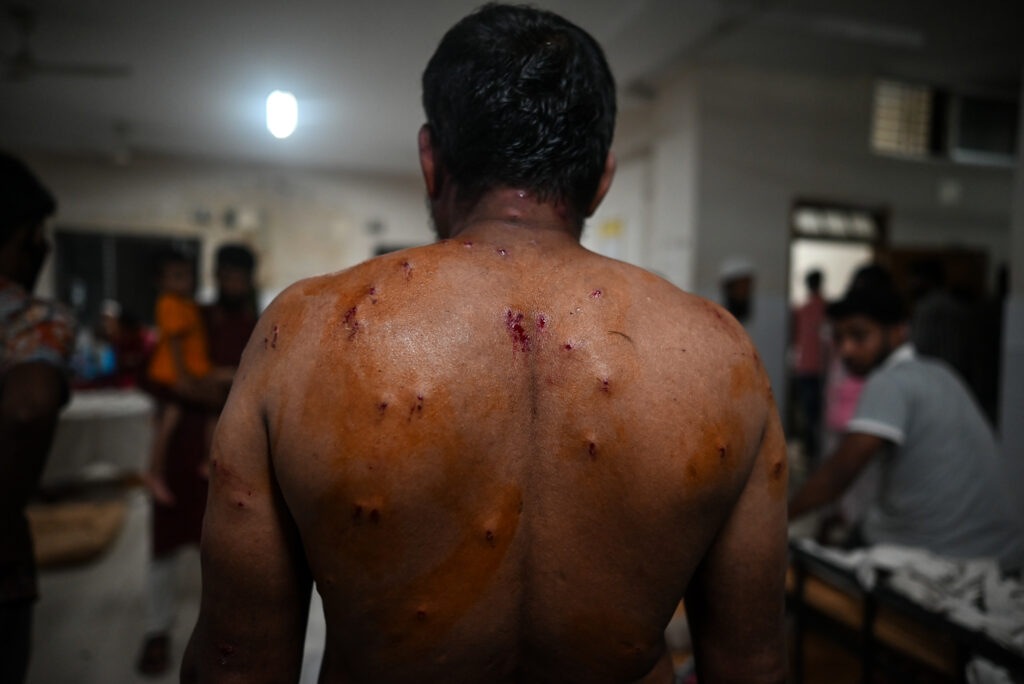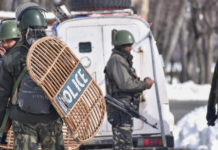Bangladesh military chief Gen. Waker-uz-Zaman has announced a transitional government after Prime Minister Sheikh Hasina fled the country due to nationwide protests.
Hundreds of people have been killed and wounded during the protests since July, which first called for the abolition of quotas in government jobs and later the resignation of the Hasina, who had been in power since 2009.
The 76-year-old is the daughter of Sheikh Mujibur Rahman, the founding leader of Bangladesh.
In an address to the nation after meeting political party leaders, Zaman called for peace and said there would be “no need” of martial law if normalcy returns to the South Asian nation. He pledged to probe deaths of the protesters.
Hasina is said to have fled to neighboring India, and has not issued any statement yet.
Earlier, students had pushed back any possibility of a military takeover. Asif Mahmud, a key coordinator of the ongoing demonstrations, said in a social media post that students “won’t accept military takeover.”
On Sunday at least 93 people were killed in the fresh protests, hospital sources told Anadolu.
Subscribe to our newsletter and stay updated on the latest news and updates from around the Muslim world!
Hasina on Sunday threatened to use a “heavy hand” against those who commit “terrorism” or “spread anarchy” in the country.
Earlier in the day, authorities partially restored internet as thousands of protesters converged in the capital.
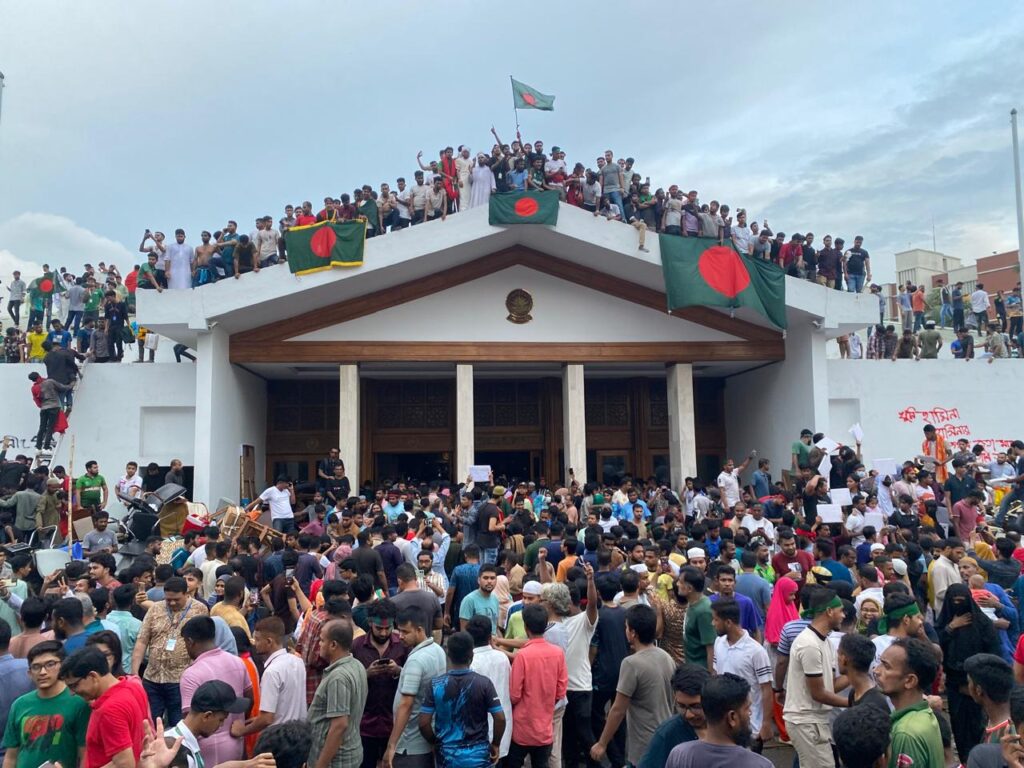
The eldest daughter of Bangladesh’s founding father, Sheikh Mujibur Rahman, Sheikh Hasina maintained power for over 15 years and governed with what critics said was an “iron fist.”
Her main political rival, the Bangladesh Nationalist Party (BNP), faced tens of thousands of legal cases, which many believe she orchestrated with the support of a largely submissive judiciary.
Throughout her long tenure, Bangladesh saw three highly controversial elections, two of which were conducted without major opposition participation, while the 2018 election was widely criticised as a “midnight election” due to allegations that her party supporters cast the majority of votes in the night before the official election day. She secured a fifth term in January.
Ironically, Hasina once played a crucial role in liberating Bangladesh from military rule in the early 1990s, opposing the then-dictator Hussain Mohammad Ershad, who later became her ally.
She had been the prime minister since 2008, following a sweeping victory by the Awami League. The 76-year-old is the longest-serving leader in Bangladesh’s history and was the world’s longest-serving female head of government.
Hasina has led the Awami League, founded by her father since 1981. She earlier served as the Prime Minister from 1996 to 2001, during which she defeated her rival Khaleda Zia, who later reclaimed power in 2001.
During her recent 15-year tenure, Hasina’s administration was marked by widespread arrests of political opponents and human rights sanctions against her security forces.
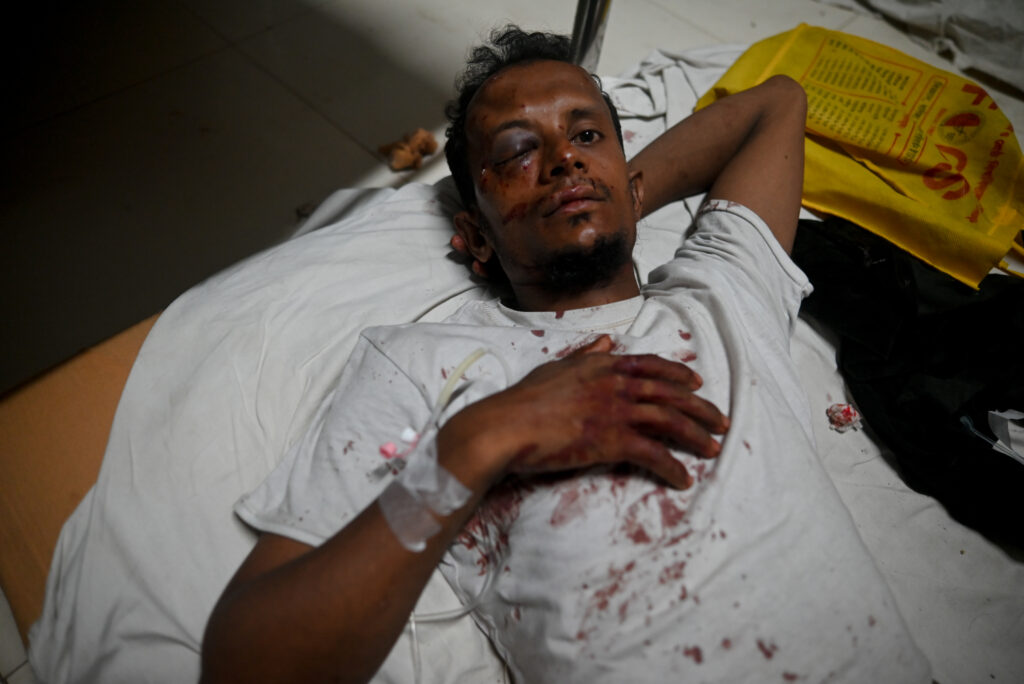
Born in 1947 into a Muslim family in East Bengal, Hasina was politically active from a young age. Her father, Mujibur Rahman, known as the “father of the nation,” led Bangladesh to independence in 1971 and became its first president.
By then, Hasina was already a notable student leader at Dhaka University. The assassination of her father and most of her family in a 1975 military coup left her and her younger sister as the sole survivors, as they were abroad at the time.
After a period of exile in India, Hasina returned to Bangladesh in 1981 and took leadership of the Awami League. She played a significant role in organizing pro-democracy protests against Gen. Ershad’s military rule, quickly rising to national prominence.
Hasina first became prime minister in 1996, earning credit for a water-sharing agreement with India and a peace accord with tribal insurgents in southeastern Bangladesh. However, her administration faced criticism for alleged corruption and perceived favoritism toward India, leading to her loss of power to former ally-turned-adversary Zia.
Her government’s heavy-handed approach to dissent fueled domestic discontent and attracted concern from international observers.
In recent years, the execution of five prominent Islamic leaders and a senior opposition figure, following convictions for crimes against humanity during Bangladesh’s 1971 liberation war, instead of healing historical wounds, also sparked widespread protests and violent clashes.






